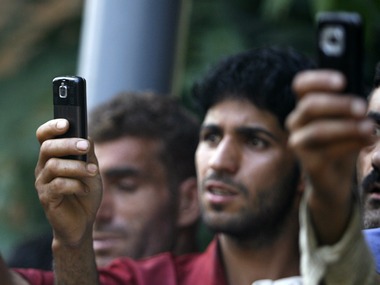For Apple, the week kickstarted with its **iPhone SE event** alongside some other announcements on Monday. Today was when the company was supposed to have a courtroom showdown deciding the fate in the encryption battle it is embroiled in with the FBI. Interestingly, the Apple event was to take place a week earlier on 15 March, and devices to hit stores by March 18. So, either the company’s recent focus on dealing with the legal issue has compelled it to push the event ahead, or it’s an intentional move to stir away attention from the ongoing legal hassle with new device announcements. If that wasn’t indicative of the move to communicate on privacy, then consider this. At the event last night, there was no chest thumping on the latest sales or app download numbers that’s usually shared at the beginning. Instead, Apple looked like it’s the guardian of personal freedom, a responsible citizen that cares for the environment and works effortlessly to guard human health. Most definitely, the FBI case hearing was on the minds of event planners, and would have been directed from the highest orders. It’s a great way for Apple to put forth a strong case towards how committed the company is at encryption and data security at the launch event, which might help add to the hordes of protesters you can except outside the courtroom in the federal court in Riverside, Calif. But then, this morning we woke up to news that the FBI said it figured out a way to gain access to the iPhone found in the San Bernandino case. Putting it briefly, Apple was asked to build a backdoor to the iPhone for extracting private data and integration of the terrorist Syed Rizwan Farook who killed 14 and injured 22 people in San Bernardino. The company refused to follow FBI orders as it violates privacy of its customers. Thereafter, there has been a lot of public mudslinging between the two parties. And now, both parties would live happily ever after from the way things look. (Also read: Apple vs FBI: The encryption battle heats up ) This isn’t the first time that the company was asked to crack down a phone related to a crime investigation, and both seem to have gone seeking for public support is making the big difference here. A terrorist killing people is unjustifiable and defending such a person’s iPhone could build a strong case against why the government deserves a backdoor into the data. The FBI chief did say that it is a one off case, which was so unbelievable in itself, that he soon swallowed back his words and called it a way of ‘setting precedent’. On the other hand, Apple, known to usually wrap up such discussions behind closed doors, publicly refused the request clearing stating what the FBI is up to and why it is refusing the demand. Apple fought back saying it is sad with the incident but making a backdoor means catering to thousands of such requests in the future. This deters the company’s biggest selling point - security and privacy. Today, people are divided in views and opinions. It has become a national debate or rather worldwide. It is a debate for anyone owning an iPhone. Both Apple and FBI are trying to use this opportunity to tell people why each one is right, and there is no denying that each one is in its own way. And, that has made it an extremely complex issue to deal with as Apple projects its dwindling iPhone as a sole protector of your data and FBI is trying to pave way to access public data with the horrific incident in the backdrop. Both have made accusations, counter accusations and finally the court will decide the fate.
For Apple, the week kickstarts with its iPhone SE event alongside some other announcements on Monday, and the next day is one of those courtroom showdown deciding the fate in the encryption battle it is embroiled in with FBI.
Advertisement
End of Article
Written by Naina Khedekar
Armed with a Bachelor of Electronics Engineering degree, it is writing where Naina finds her calling. She has got her finger on the pulse of what's new and trending in the world of technology, right from gadgets to innovations. When she isn't hammering away on her keyboard, she is busy looking for figurines to add to her growing collection of Kinder toys. It doesn't get more diverse than that. see more


)
)
)
)
)
)
)
)
)



